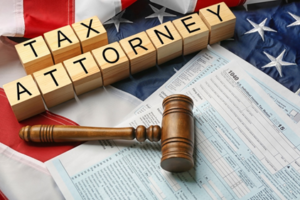
Bankruptcy Vs Debt Settlement
Before you settle with creditors, it is important to consider whether bankruptcy is the right option. While the idea of settling a portion of your debt might sound appealing, it is important to examine the numbers and the overall implications. This article will discuss bankruptcy vs debt settlement.
1. The outstanding balances may be increased by late fees, interest, and attorney fees. Consumer credit debt has an average interest rate of between 29% to 30% after default. The debt will grow exponentially, quickly doubling or tripling in size.
-
- Is it really possible to pay 40% or 50% of the debt? It’s unlikely.
- Chapter 7 bankruptcy may allow you to pay only part or all of your total debt.
- In Chapter 13 bankruptcy, you would have to repay some of your debts. This could be anywhere from 3 to 5 Years. This percentage is calculated based on your monthly income.
2. Consider the tax implications of Forgiveness Of Indebtedness. Although settlements may offer tax benefits, you should also consider the potential tax consequences. You may have to declare the amount forgiven as income on your federal income taxes return. Based on your tax bracket and circumstances, you may be subject to additional taxes.
- The filing of bankruptcy does not automatically release any outstanding debts. Any debts you get rid of in bankruptcy will not trigger federal income tax.
- Credit reporting and settlement: Your creditor may report on your credit reports if you have reached a settlement. This can negatively impact your credit score, and your ability to obtain credit.
- Credit reporting and lawsuit: Credit reporting agencies will still report that the case exists, even if it is resolved. Credit score and ability of you to get credit will be affected.
BANKRUPTCY
Bankruptcy is a possible solution. Bankruptcy will end all collections, credit cards, and medical bills. You don’t need to contact each creditor individually in order to set up settlements and payment plans.
You do not need to declare any income that was eliminated from your federal tax returns when filing bankruptcy.
No matter what stage you are at, all collection efforts will cease if bankruptcy is filed. Creditors will not be able to contact you by phone or in writing. Creditors will not be allowed to file or continue lawsuits, foreclose on your property, garnish wages, seize funds from any bank account or seize assets. It is crucial to know the difference between bankruptcy and debt settlement.
This post was written by Trey Wright, a lawyer with extensive experience as bankruptcy attorneys in Panama City Florida! Trey is one of the founding partners of Bruner Wright, P.A. Attorneys at Law, which specializes in areas related to bankruptcy law, estate planning, and business litigation.
The information provided on this website does not, and is not intended to, constitute legal advice; instead, all information, content, and materials available on this site are for general informational purposes only. Information on this website may not constitute the most up-to-date legal or other information. This website contains links to other third-party websites. Such links are only for the convenience of the reader, user or browser; the ABA and its members do not recommend or endorse the contents of the third-party sites.


